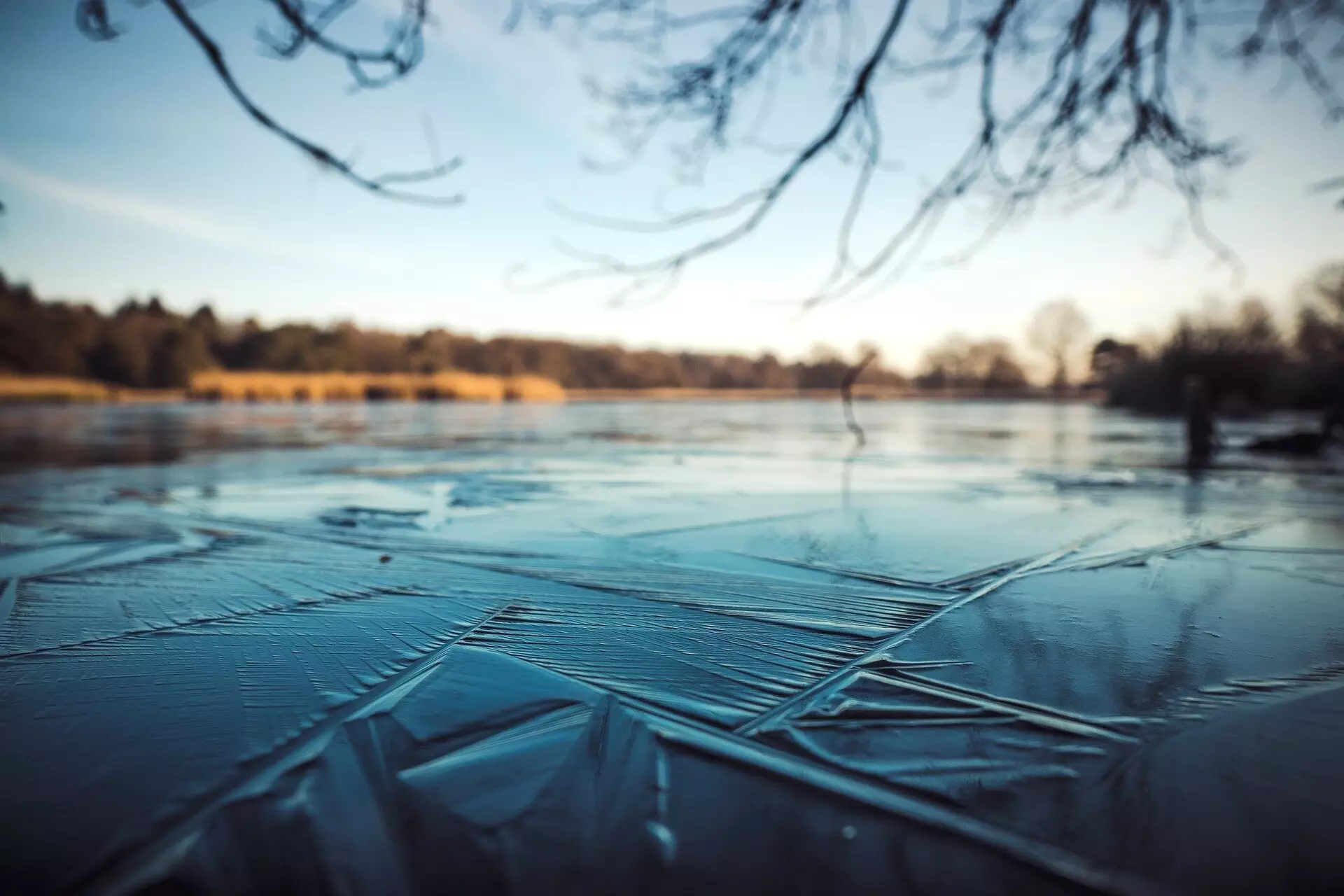The world’s freshwater lakes, crucial ecosystems that support diverse life forms and human communities, are undergoing significant transformations attributed to climate change. A recent comprehensive study led by Stephanie Hampton from Carnegie Science brings to light the urgent issue of declining ice cover on these water bodies during winter. This shift not only impacts ecological balances but also carries profound consequences for water quality, biodiversity, and the fundamental nutrient cycles that maintain life on Earth. In the face of these changes, researchers are advocating for more focused wintertime ecological studies to understand and address the broad implications of ice loss.
Recent analyses have demonstrated a troubling trend: freshwater lakes are freezing over for less time now than they have historically. According to the study, over the last 165 years, the average duration of ice cover on lakes has decreased by a staggering 31 days, with many lakes that were once routinely frozen now experiencing years without ice altogether. This phenomenon is not just a statistical anomaly; it reflects a fundamental alteration in climatic and ecological equilibrium that could have extensive repercussions for the millions of people who rely on these water bodies for essential resources like drinking water, recreational activities, and fishing.
Hampton’s insights shed light on the multifaceted impacts of this decline in ice duration. In essence, the loss of ice cover opens up a Pandora’s box of challenges that threaten the health of aquatic ecosystems and the communities surrounding them.
The implications of the reduced duration of lake ice extend beyond surface observations. Warmer water and altered biogeochemical processes increase the risk of harmful conditions for aquatic life. For instance, the prevalence of harmful cyanobacterial blooms escalates in warmer temperatures, posing threats to both aquatic animals and human populations who depend on clean water. Furthermore, these blooms can produce low-oxygen conditions that disturb the sediment on the lakebed, releasing harmful metals back into the water. This multifaceted threat underscores the delicate balance within lake ecosystems that ice cover helps to maintain.
Moreover, the shifting temperatures and shorter ice seasons are facilitating the encroachment of invasive species. Species that thrive in warmer environments can outcompete native cold-water organisms, significantly disrupting existing ecological networks. This shift threatens the biodiversity that supports fishing economies and local traditions tied to these natural resources.
Beyond immediate ecological harm, altered ice dynamics in lakes affect global climate systems. The study highlights a concerning connection between ice-free lakes and the release of greenhouse gases. Lakes play a critical role in sequestering carbon dioxide, but when ice cover diminishes, increased water temperatures can lead to higher rates of methane and nitrous oxide emissions. These gases contribute to climate warming, creating a feedback loop that exacerbates environmental degradation.
The decreasing ice duration also induces increased evaporation rates, which can further diminish freshwater supplies for surrounding communities. This is particularly concerning in regions where water scarcity is already a pressing issue. Additionally, as ice loss potentially increases local snowfall and erosion, it threatens infrastructures and livelihoods, establishing a direct link between climatic shifts and human vulnerability.
Despite the pressing need for understanding these complex interactions, wintertime research on lake ecosystems has been historically neglected due to logistical challenges and safety concerns. Hampton and her team argue for an urgent push towards winter ecology studies. They emphasize that without careful examination of ice-covered lakes, researchers cannot fully grasp the extensive consequences of climate change on these vital ecosystems.
Recent initiatives such as the “winter school” organized by Hampton at Trout Lake in Wisconsin demonstrate a commitment to fostering a new generation of researchers equipped with the skills to safely study iced-over lakes. Such programs are integral for developing safe research practices and expanding the scientific community’s understanding of how lakes function during winter months.
The accelerating changes in lake ice dynamics driven by climate change present a multifaceted challenge that threatens both ecological integrity and human livelihoods. As Stephanie Hampton poignantly remarks, it is crucial to grasp the extent of these changes and their ramifications in order to develop effective mitigation strategies. The knowledge gained from thorough winter studies will be vital in addressing these challenges, allowing us to safeguard the health of our planet’s freshwater ecosystems and the communities that depend on them. Without immediate action to enhance research and adapt to these shifts, we risk further compromising the delicate balance of nature that sustains life.


Leave a Reply